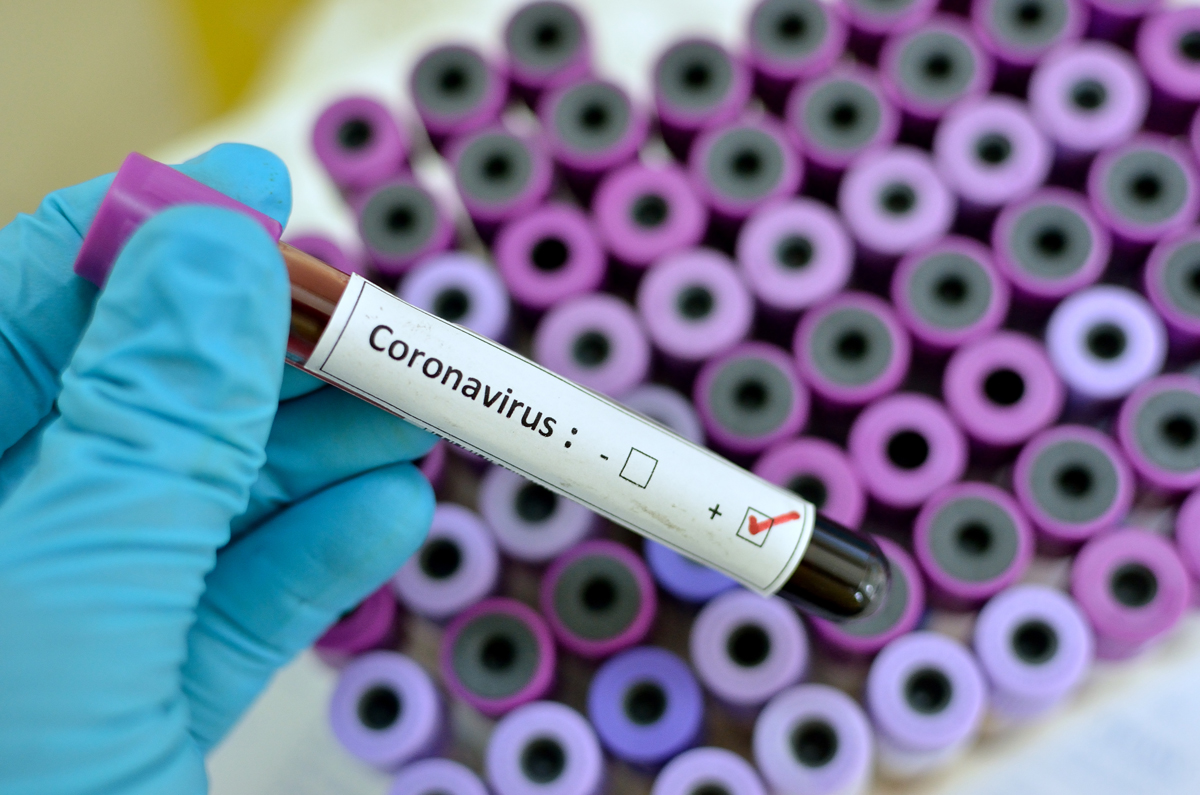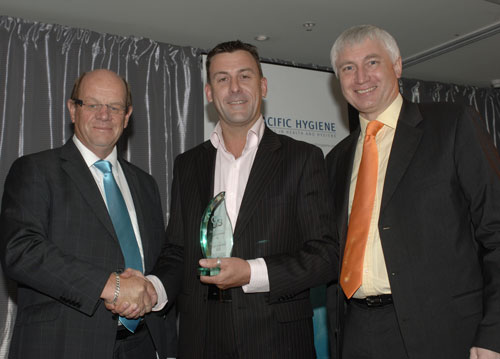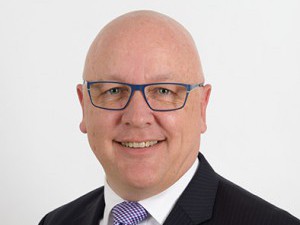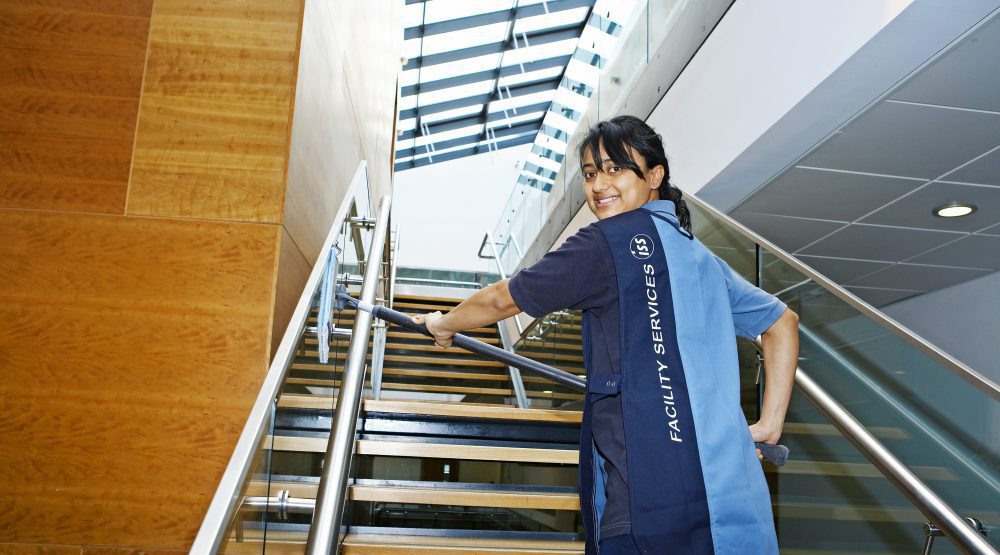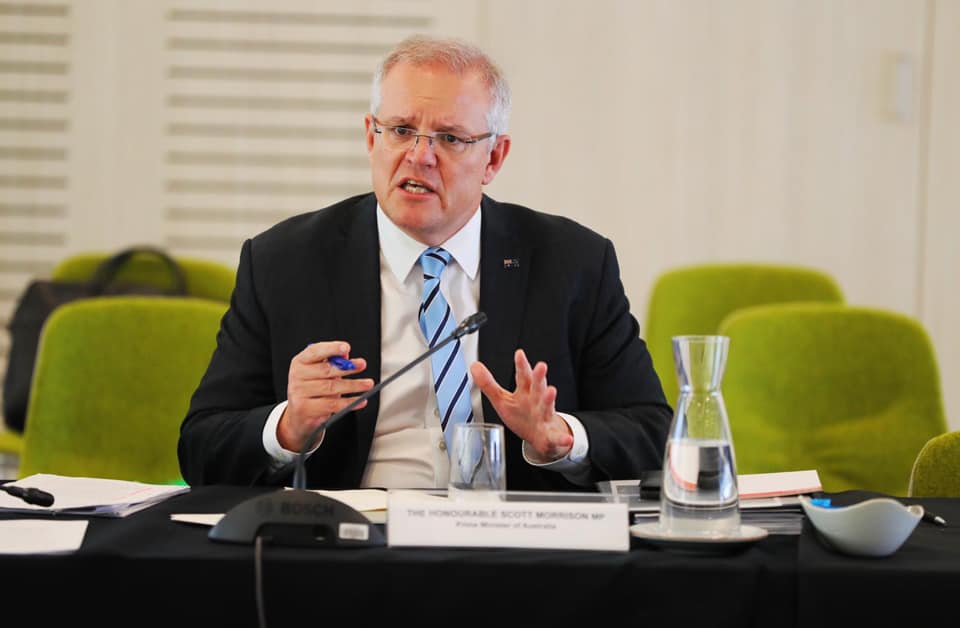
Updated
Prime Minister Scott Morrison has announced a raft of new measures in a bid to reduce the spread of COVID-19, including bans on international travel and non-essential indoor gatherings of more than 100 people.
Morrison said states and territories would enforce the tough new restrictions with immediate effect and it could last for at least six months.
“Do not go overseas – that is a very clear instruction,” Morrison said.
“We are upgrading the travel ban on Australians to level 4 for the entire world.
“That is the first time that has ever happened in Australia’s history. The travel advice to every Australian is ‘do not travel abroad.”
Gatherings that are classified ‘essential’ and are exempt from the ban include schools, universities, airports, public transport, medical facilities, aged care facilities, jails, courts, parliaments, supermarkets and many workplaces.
As to how long the bans will be in place, it is now up to state and territory governments, which are now establishing the legal enforcement of the measures for non-essential indoor gatherings of fewer than 100 people (including staff) such as cinemas, theatres, restaurants/cafes, pubs, clubs, weddings and funerals.
Venues have been urged to continue to apply social distancing and hygiene practices, including being able to maintain a distance of 1.5 metres between patrons and hygiene products and suitable waste receptacles need to be available, with frequent cleaning and waste disposal.
The ban on all non-essential gatherings outdoors remains at a maximum of 500 people.
Kim Puxty, national president of the Building Service Contractors Association of Australia (BSCAA), said the ban on non-essential indoor gatherings of more than 100 people will impact the livelihood of many people around Australia, including cleaning staff.
“With sport and entertainment venue bans for gatherings of more than 100 people, whilst this work is largely ‘seasonal’ for many casual staff, it is still going to impact the livelihood of many people around Australia.
“The BSCAA encourages the entire cleaning industry to put aside competitive trends, and for everyone to work together. Companies are encouraged to share resources, primarily human resources, to deliver positive outcomes to the Australian community at large.”
“There is no reason for people to be hoarding supplies”
In his address the Prime Minister slammed shoppers bulk purchasing supplies, stating “scalable and sustainable measures” are being implemented to avoid frenzied buying.
“On bulk purchasing of supplies: Stop hoarding. I can’t be more blunt about it. Stop it,” Morrison said.
“It is not sensible, it is not helpful and it has been one of the most disappointing things I have seen in Australian behaviour in response to this crisis.
“That is not who we are as a people. It is not necessary. It is not something that people should be doing.”
The supermarket giants have already applied purchasing limit to products including toilet paper as suppliers ramp up production to meet demand.
“I am seeking Australia’s common sense cooperation with these very clear advisory positions. Stop doing it. It’s ridiculous. It’s un-Australian, and it must stop,” he said.
“I would ask people to do the right thing by each other in getting a handle on these sorts of practices.”
Tightened protocols for aged care facilities
Tightened protocols for aged care facilities were also announced, including requiring all staff and visitors to residents to undergo a 14-day self-isolation period before entering premises.
Chief medical officer Brendan Murphy said the focus was on protecting vulnerable people.
The national restrictions have been welcomed by aged care industry body, Leading Age Services Australia (LASA).
“Taking strong measures to protect older Australians is critical to saving lives, in the face of the escalating COVID-19 threat,” said LASA CEO, Sean Rooney.
“We welcome the balance between care, compassion and an appropriate measure of caution and protection..
“We know the mental health of people in care is equally important to their physical health and wellbeing, so getting that balance right is fundamentally important.”
Rooney said the sector has been on high alert since late January and implementing increased infection controls, as required by the Aged Care Quality and Safety Commission.
“Also, we have been making sure that staff, residents, family and friends are all fully appraised of the latest information from public health authorities so they understand what role they must play in ensuring we are protecting older people.
“A whole of community response is required, because of the scale and the scope of what we have seen develop in other countries.
“This is crucial for the care of older Australians and the staff who look after them. We must ensure we are doing everything we possibly can to reduce their risk of infection.”
Confirmed cases rise to 454
As at 6.30am on 18 March 2020, there have been 454 confirmed cases of COVID-19 in Australia, 40 new cases since 3pm yesterday.
Of the 454 confirmed cases in Australia, 43 have recovered and five have died from COVID-19.
228 cases were considered to be overseas acquired. Most of the overseas cases were acquired in the USA, Iran, Italy and the UK. 62 cases are contacts of previously confirmed cases.
The likely place of exposure for 138 reported cases is under investigation. The source of infection for 26 cases is currently unknown.
On Monday a state of emergency was also declared in Victoria, ACT and WA to deal with the spread of coronavirus.
Across the world there have been more than 190,600 confirmed cases of COVID-19 and more than 7700 deaths.
Comment below to have your say on this story.
If you have a news story or tip-off, get in touch at info@3.106.117.80.
Sign up to INCLEAN’s newsletter.
